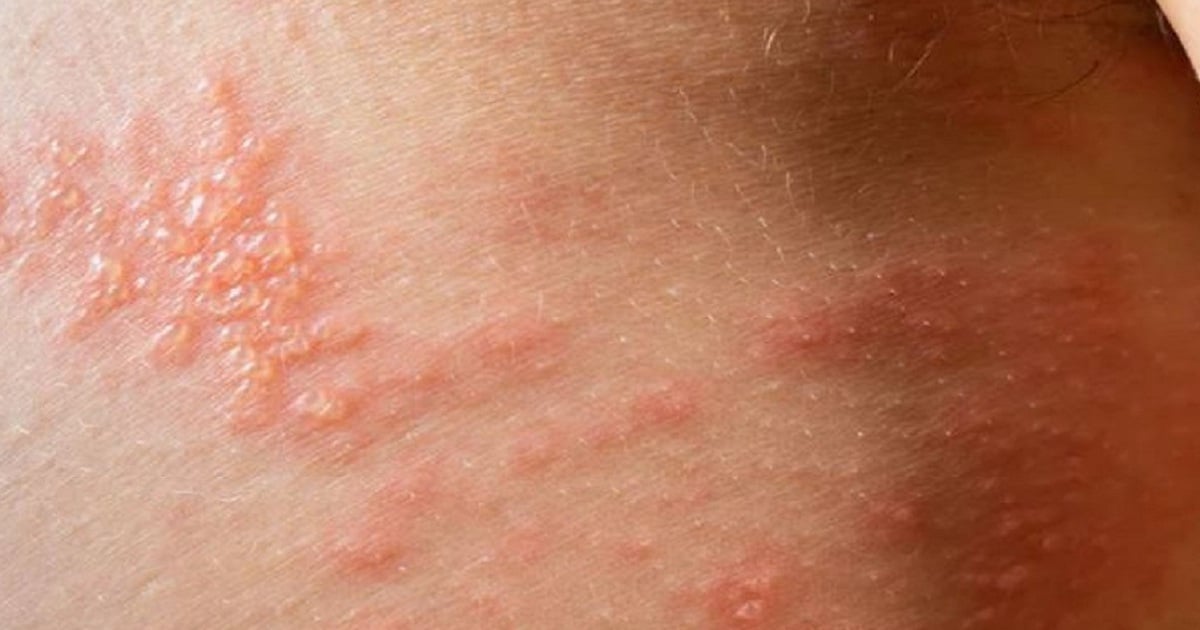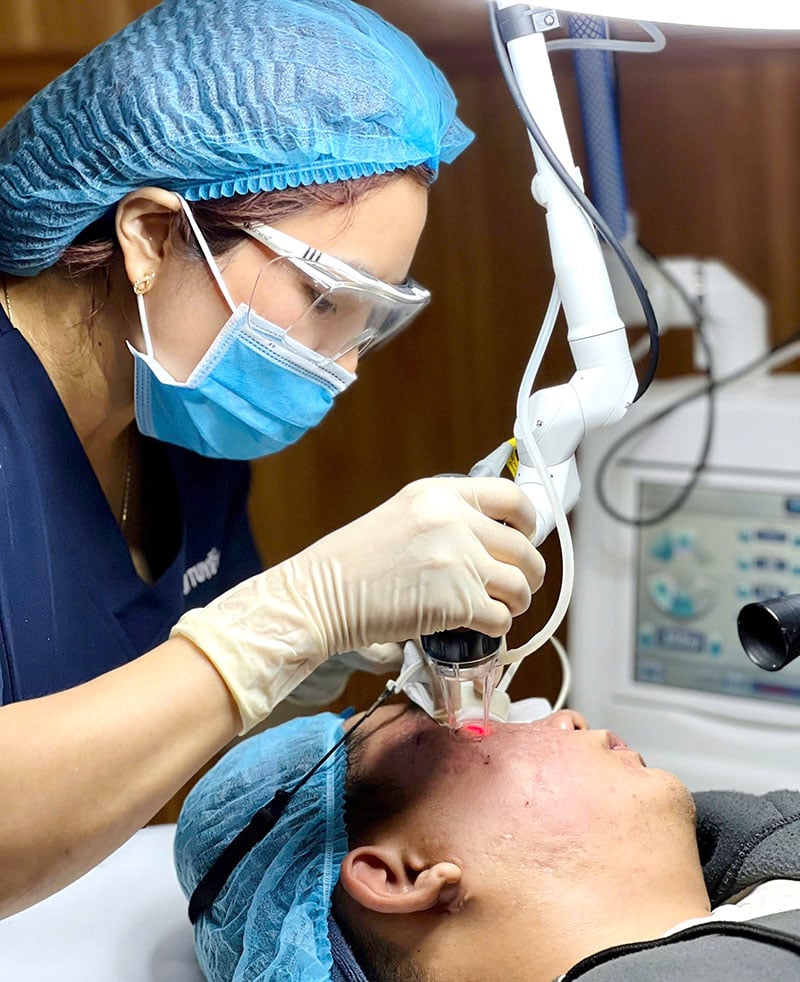Buzzing, hissing, buzzing... are manifestations of tinnitus. There are many notable causes leading to this, including nerve damage.
Signs of high blood pressure and neurological problems
Tinnitus is a symptom in which the patient feels a sound in the ear even though there is no external sound source. According to Master - Doctor Le Ngo Minh Nhu, Ngu Quan Clinic (Ear, Nose, Throat - Eyes), University of Medicine and Pharmacy Hospital, Ho Chi Minh City - Facility 3, factors and diseases related to tinnitus include:
- Inner ear disorder.
- Damage to hair cells in the cochlea: Damage to hair cells in the inner ear due to exposure to loud noise or age can cause tinnitus.
- Meniere's disease: An inner ear disorder caused by fluid buildup, causing tinnitus, dizziness, and hearing loss.
- Otitis media or otitis externa: An ear infection or inflammation can cause a feeling of ringing in the ears.
- Diseases related to blood vessels such as:

Stress and nerve trauma can also cause tinnitus.
High blood pressure : Increased pressure in the blood vessels can cause a pulsating buzzing sound.
Atherosclerosis : Hardened arteries change blood flow, causing tinnitus.
Glomus tumor : A benign tumor that can grow near the ear and cause a throbbing sound.
- Trauma and nerve damage.
Head or neck injury : Causes damage to the auditory nerve or the area of the brain that processes sound.
Schwannoma: A benign tumor that affects the auditory nerve, causing tinnitus and hearing loss.
Exposure to loud noise : Frequent exposure to loud sounds (machinery, loud music, etc.) damages the inner ear.
Side effects of medications : Certain medications such as aspirin, antibiotics, and chemotherapy drugs can cause tinnitus.
Temporomandibular joint (TMJ) dysfunction : Jaw problems can also cause tinnitus.
Stress and anxiety : Psychological stress can increase the intensity and frequency of wasp nests.

Tinnitus with rapid heartbeat may be due to high blood pressure
Risk of hearing loss
Many people think that tinnitus is just a small sign of the body and is easily ignored. In fact, this phenomenon can lead to many health consequences.
“Tinnitus greatly affects the quality of life, first of all it causes discomfort and loss of concentration for the sufferer. The tinnitus often becomes more obvious in quiet spaces, making it difficult to sleep or causing prolonged insomnia, making the patient feel exhausted both physically and mentally. In addition, tinnitus is often accompanied by hearing loss, making it difficult for the patient to hear and understand clearly when communicating,” said Dr. Minh Nhu.
Notably, this manifestation tends to appear more in young people - a group of people who should have more stable physical health than older age groups.
According to Dr. Minh Nhu, young people who often suffer from tinnitus should not be subjective but need to pay attention to many factors to control the condition and reduce the risk of disease progression. This phenomenon not only affects health but can also be a warning sign of potential problems. Specifically, attention should be paid to:
Avoid exposure to loud noise : Avoid using headphones at high volume, especially for long periods of time. Reduce exposure time to noisy environments (bars, construction sites, concerts...). Use ear protection if you have to work in a noisy environment.
Check and adjust your lifestyle : Stress can aggravate tinnitus. Try to balance work and rest, practice relaxation techniques such as meditation and yoga. Limit alcohol, coffee, and tobacco, as these substances can increase the feeling of tinnitus.
Get enough sleep : Lack of sleep causes nervous system stress, which can easily aggravate ringing in the ears.
Monitor your ear health : Earwax blockage can cause earwax. Clean your ears properly and avoid vigorous ear cleaning that can damage the ear canal. Monitor symptoms such as ear pain, discharge, or hearing loss, as these may be related to earwax.
Control underlying medical conditions : If you have problems such as high blood pressure, diabetes, or thyroid disease, they need to be treated and controlled to reduce the risk of tinnitus.
Avoid self-treatment : Do not use drugs on your own, especially anti-inflammatory or pain relievers, without a doctor's prescription, because many drugs can cause tinnitus.
Source: https://thanhnien.vn/khong-duoc-chu-quan-neu-thuong-xuyen-nghe-thay-tieng-rit-ben-tai-185250222234303055.htm



![[Photo] Unique Ao Dai Parade forming a map of Vietnam with more than 1,000 women participating](https://vstatic.vietnam.vn/vietnam/resource/IMAGE/2025/3/29/fbd695fa9d5f43b89800439215ad7c69)
![[Photo] Schools and students approach digital transformation, building smart schools](https://vstatic.vietnam.vn/vietnam/resource/IMAGE/2025/3/29/9ede9f0df2d342bdbf555d36e753854f)



























![[Photo] Flower cars and flower boats compete to show off their colors, celebrating the 50th anniversary of Da Nang Liberation Day](https://vstatic.vietnam.vn/vietnam/resource/IMAGE/2025/3/28/086d6ece3f244f019ca50bf7cd02753b)
![[Photo] Training the spirit of a Navy soldier](https://vstatic.vietnam.vn/vietnam/resource/IMAGE/2025/3/29/51457838358049fb8676fe7122a92bfa)
































































Comment (0)